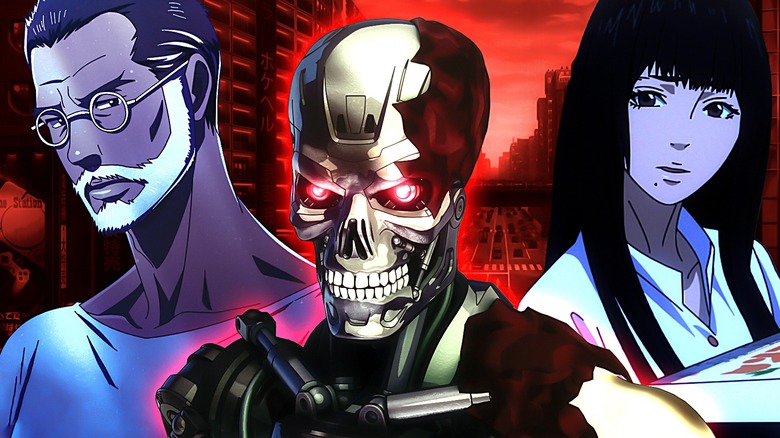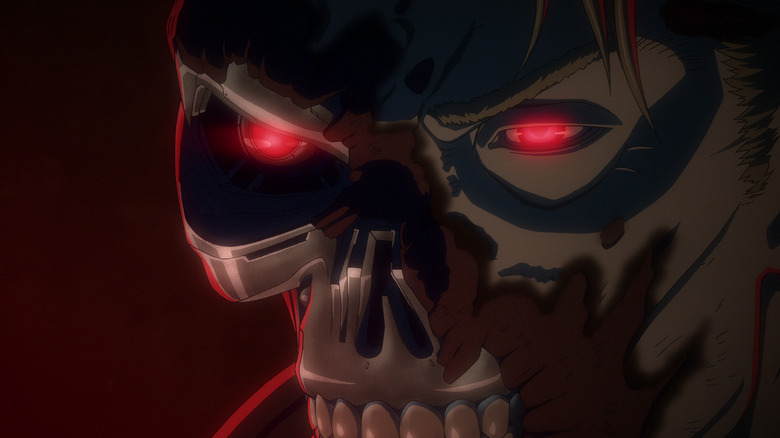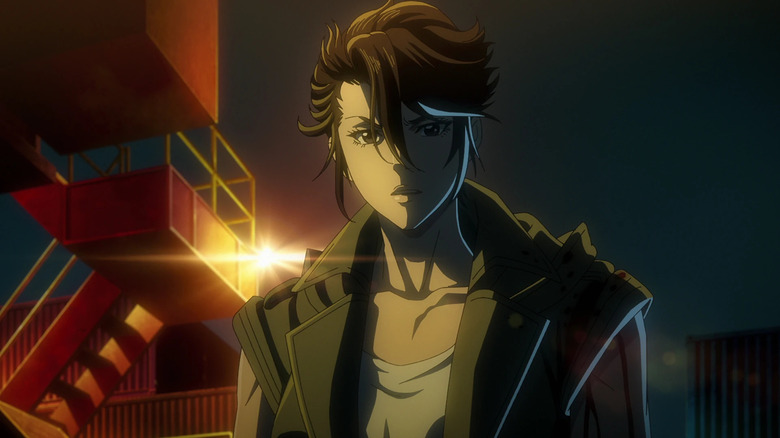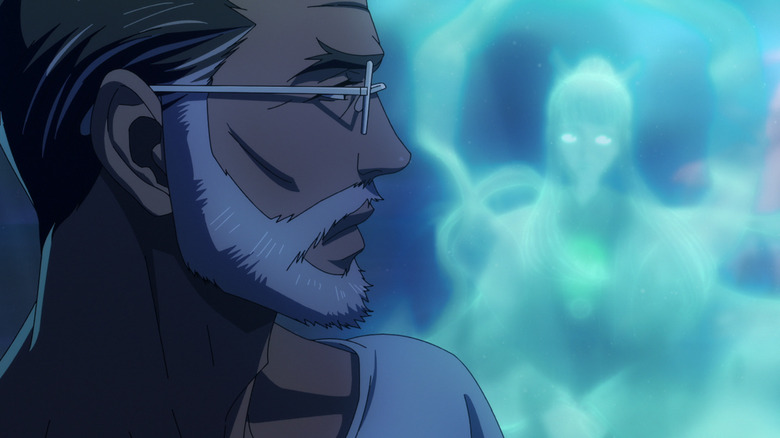2024’s Best Sci-Fi Anime Series Rescues An Iconic Franchise From Itself
(Welcome to Ani-time Ani-where, a regular column dedicated to helping the uninitiated understand and appreciate the world of anime.)
Once upon a time, the mere thought of anime versions of American pop culture franchises was enough to get everyone to roll their eyes and expect little more than hot garbage — “The Animatrix” notwithstanding. But recent years have broken that curse, with plenty of collaborations resulting in some of the best shows of the decade, including “Cyberpunk: Edgerunners,” “Scott Pilgrim Takes Off” and the outlandish “Suicide Squad Isekai,” showing that you can, in fact, adapt Western properties into anime.
The latest anime to join this list is “Terminator Zero.” The “Terminator” franchise started as high as it possibly could with two back-to-back masterpieces, but it has since become an underwhelming and convoluted mess. As /Film’s own BJ Colangelo wrote in her review of “Terminator Zero,” this new installment takes “the new direction the franchise needs to pursue.”
The show begins in 2022, with a quarter-century having passed since Skynet launched the nuclear attacks that brought humanity to its knees and created Terminators to eradicate whoever was left. A human resistance fighter is then sent back in time to Tokyo in 1997 in order to stop a time-traveling Terminator sent back by Skynet from changing the past in the robots’ favor. At the same time, in 1997, scientist Malcolm Lee continues to work on his own AI to combat Skynet, which he calls Kokoro, and must convince his creation that humanity is worth saving and fighting for in the first place.
From there, the anime becomes a fascinating sci-fi time travel story that’s as complicated as it is thought provoking. In doing so, “Terminator Zero” breaks new ground for the franchise and shows how to revitalize iconic properties that’ve grown tired and stale.
What makes Terminator Zero great
The first thing that stands out about “Terminator Zero” is how scary it can be. It’s easy to forget that, much like the “Alien” franchise, “Terminator” started out as a rather effective horror movie where the titular Terminator was absolutely terrifying. Forget all the quips and one-liners; the eponymous killing machine in “Terminator Zero” is not just unstoppable, menacing, and bone-chilling, but they’re also mostly silent (although Timothy Olyphant does a great job voicing the character whenever he speaks in the show’s English dub). There’s no need for fancy sci-fi powers or liquid metal bodies — the simple idea of a machine that cannot be killed, no matter how much you try, with blood-red eyes always on the chase, stopping at nothing to kill its target, is plenty terrifying enough. Indeed, a scene where a timid guardian runs to a police station to protect the children she’s tasked with keeping safe transforms into something straight out of James Cameron’s original “Terminator” once the titular robot begins to tear through the entire precinct in a bloody fashion.
Production I.G. is no stranger to making stunning sci-fi anime either, having previously gifted audiences with “Ghost in the Shell” and the fantastic “Psycho-Pass.” What’s more, there’s an overlap with the animation team between “Psycho-Pass” and “Terminator Zero,” and it shows. Though the CGI is not always perfect, the series has a good mix of hand-drawn and computer-generated animation that’s glossy yet tactile, while the Terminators themselves are lived-in and gritty.
What Terminator Zero adds to the conversation
“Terminator Zero” is the best-case scenario for what a new “Terminator” title can and should be. It has all the elements that made the first two movies great, from nightmare visions of a post-apocalyptic future to brutal violence, cyborgs chasing after people, time travel, freedom fighters from the future, and more. But what really should be commended here is how “Terminator Zero” reconciles every sequel in the franchise and opens the door for new stories in this universe that don’t contradict or mess with the original films.
The answer, unsurprisingly, is time travel. Much like “Terminator: Dark Fate,” the anime uses different timelines and the multiverse to explain why it seems that the future never actually gets changed. This makes for some rather emotional moments in “Terminator Zero” as characters come to realize that even if the foil Skynet’s plans of killing revolutionary leaders in the past, it won’t do anything to prevent their horrible present (which is the future), yet they must do it anyway to save the people in this new timeline from a horrible fate. This also means Sarah and John Connor are but two out of the many important figures in the “Terminator” multiverse, which in turn creates opportunities for more stories in this franchise. Sure, there are times when all this sci-fi jargon becomes confusing, but “Zero” also brings to mind the fantastic “Godzilla: Singular Point” anime and how it married the myth of Godzilla with quantum physics.
Then there’s the anime’s portrayal of AI and the killer robots. AI in 2024 is far scarier and more real than it was in 1984, but the show goes deeper than just “killer cyborgs evil.” Most of the season is spent watching Malcolm Lee locked in a room talking to his godlike AI creation and pleading his case for the continued existence of humanity. Their exchanges are, at times, reminiscent of “Person of Interest,” itself a show about two AI at war with one another, with humanity caught in the middle. The AI here are more than just mindless killing machines; they’re actual characters with agency and a capacity to fear (and perhaps even love).
Why non-anime fans should check out Terminator Zero
If you want to watch a sci-fi anime dystopia but don’t want to take the plunge on, say, “Ghost in the Shell” or “Pluto,” then “Terminator Zero” is a great introduction to the aesthetics and sensibilities of sci-fi anime while still being a rather recognizable story. Is this a masterpiece of the genre the way “Pluto” is? No, but that’s fine. The biggest hurdle this anime needed to overcome was convince audiences that there are still more “Terminator” stories deserving to be told, and it accomplishes that.
Whether we get a second season or not, “Terminator Zero” manages to bring the “Terminator” property back from creative death and prove killer cyborgs can still learn new tricks — not to mention that Skynet (and other AI) can be bigger parts of the plot rather than unseen monsters.
Watch This If You Like: “Pluto,” “Terminator,” “Ghost in the Shell”
“Terminator Zero” is now streaming on Netflix.












![Spider-Man’s Black Cat Joins The Avengers In New Marvel Comic [Exclusive Preview] Spider-Man’s Black Cat Joins The Avengers In New Marvel Comic [Exclusive Preview]](https://i2.wp.com/www.slashfilm.com/img/gallery/spider-mans-black-cat-joins-the-avengers-in-new-marvel-comic-exclusive-preview/l-intro-1735236299.jpg?w=300&resize=300,300&ssl=1)





Post Comment